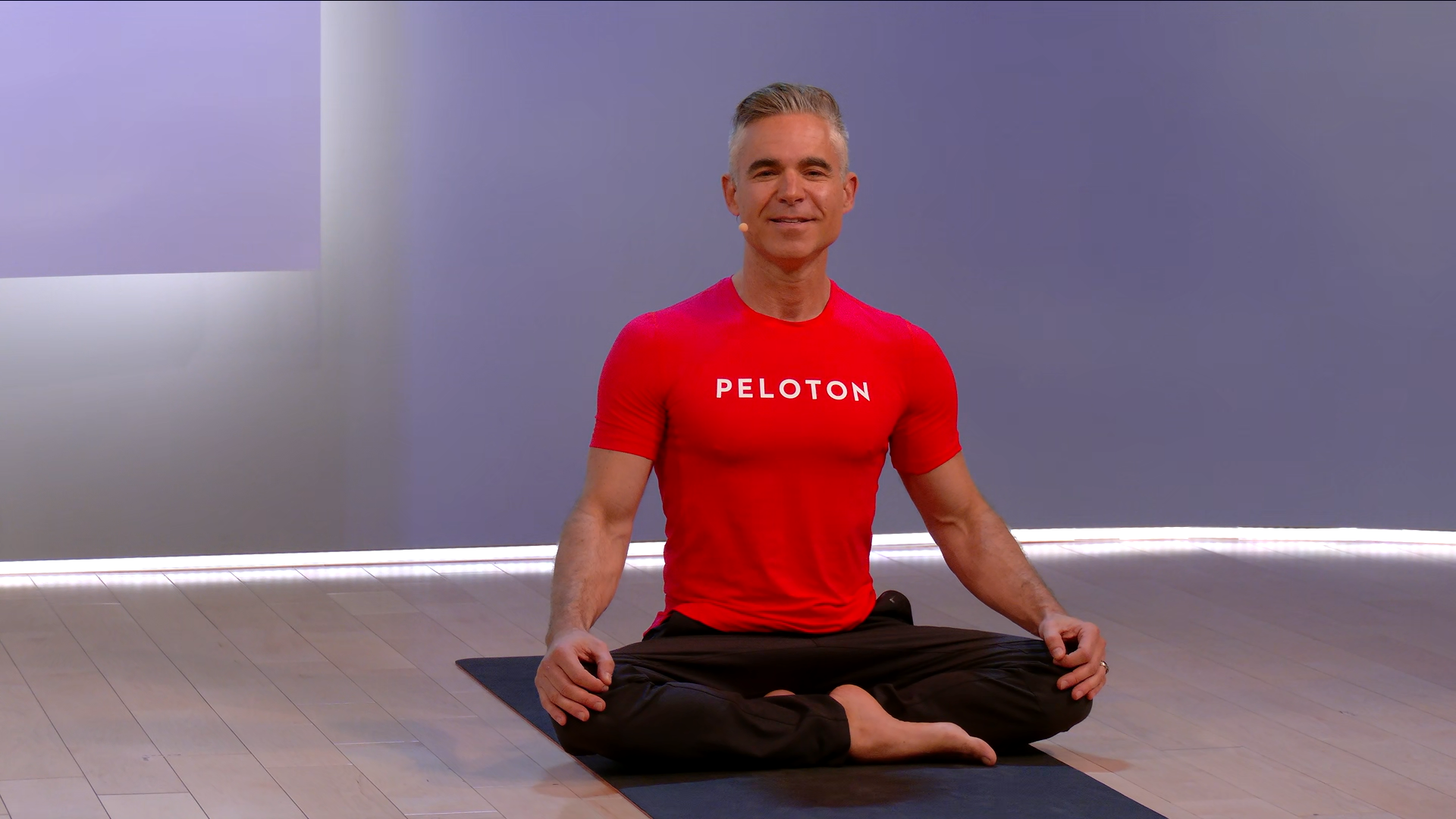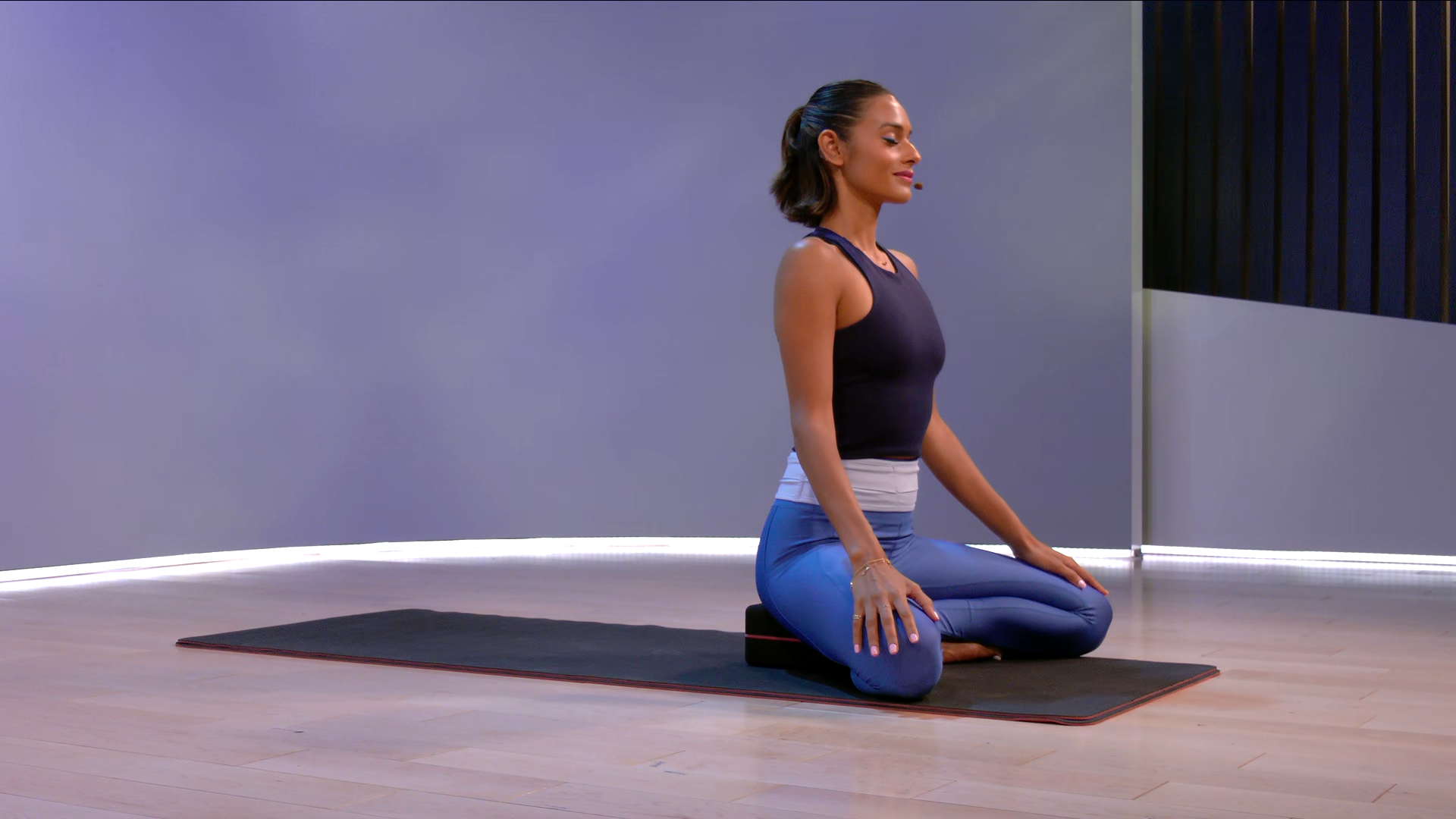
This Might Be The Best Time of Day to Meditate, According to Experts
Making meditation a habit means making the most of your schedule.
By Jessica Migala•
When is the Best Time to Meditate?
Should You Meditate Before or After a Workout?
How to Find the Best Time of Day to Meditate For You
Meditating can give you so much: Less stress and anxiety, more resilience, and the ability to cope with what life throws at you. But just like developing and maintaining any healthy habit, finding out the best time to meditate each day can help you get the most perks out of the practice and stick with it for the long haul. That’s when change really happens.
Discover more ways to reach your goals with Peloton
“Meditation is similar to working out. You can’t do it once and receive the benefits. The benefits build with time,” says Aditi Shah, a Peloton meditation, yoga, and Pilates instructor. And those benefits are worth it: “A meditation practice gives you so much bang for your buck. It’s short, but it affects how you relate to yourself and the world. And this starts with your ability to commit to it.”
One reason why it’s important to find the best time of day to meditate is so you can create consistency in your practice. “You begin to develop an understanding of the technique and hone those muscles of focus,” Aditi explains. As you improve your meditation skills, you’re more likely to make meditation something you do every day—or at least regularly.
But, is there really an ideal time of day to meditate for everyone? Or, is there an ideal time to meditate for you? Here’s how to figure it out so you can bring balance into your life.

When is the Best Time to Meditate?
Most important is finding a sliver of time in your day when you’re available to meditate. Two things that Aditi really loves about meditation are that there are so many opportunities to practice since it can take just minutes per day and it requires no equipment.
“Meditation does not ask for a lot. You only need a place to be where you can tune out,” she says. Research shows that just five to 12 minutes per day of mindfulness meditation is associated with less stress and anxiety, according to a study in the Journal of American College Health.
You might be wondering, is it better to meditate in the morning or night? According to research on the habits of mental health app users, those are two of the most popular times for people to practice meditation and mindfulness. Other research indicates that bookending your day with meditation—a.m. or p.m.—can boost your mental health. Even though a.m. and p.m. are both good choices for meditation, there are specific reasons why you might choose one time of day over the other.
In the Morning
Many people, including Aditi, like to meditate in the morning. “I feel as if it sets me up for the day,” she says. The other benefit to placing meditation in a morning routine is that it may be easier to accomplish when the rest of your day hasn’t had a chance to get in the way.
To reinforce a morning meditation habit, Aditi recommends using habit stacking. For instance, every day, you brush your teeth, make your bed, and then sit down for a quiet meditation. By tying meditation to something that you’re consistently doing each day, there’s an increased likelihood that you’ll make space for it and it will become a natural part of your routine.
Of course, maybe you don’t have the luxury of a slower morning, and getting ready for work or the kids off to school is a blurred rush. For you, the morning may not be the ideal time.
Before Bed
Do you climb into bed only to find that your head swirls with a combination of anxious thoughts and a long to-do list? Practicing meditation before bed might be the perfect nighttime ritual. Why? Adults with insomnia who used a mindfulness meditation app for more than 10 minutes per day for eight weeks reported that their sleep quality improved and they had less fatigue compared to a control group, according to research in PLOS One. Though the people in the study weren’t told when to meditate, the most common time to do so was at night. It’s easy to fall asleep when meditating, which is fine if that’s your goal. Otherwise, Aditi recommends doing your meditation sitting up in a comfortable position. (Then, tuck into bed.)
In the Middle of the Night
One of the challenges of a 3 a.m. wakeup? Drifting back off—and not spending time staring at the clock. If you have middle-of-the-night insomnia, using a guided meditation may help you clear your mind, center yourself, and relax enough to prompt you to fall back asleep, suggests a 2020 study. (Pro tip: try a sleep meditation on the Peloton App!)

Should You Meditate Before or After a Workout?
Absolutely—though this is all based on your individual preferences, goals, and even schedule. Here’s when you might want to save space to meditate around exercise:
Before a Workout
“A mindfulness meditation practice can get you into a focused mindset before a ride or run,” Aditi says. She adds that some runners like to use meditation on race day. “Visualizing your best self or what you want to get out of the activity can help you level up.”
After a Workout
“For many people, meditation feels really good mentally and physically when done at the end of a workout like yoga,” Aditi says. Yoga lends itself particularly well to meditation because it’s a mind-body practice that puts you in a calmer headspace and prepares you for more formal meditation, she says. However, if you find that meditation feels especially good to you after rowing, running, riding, or strength training as a way to slow down again, then go for it.
How to Find the Best Time of Day to Meditate For You
Look at your schedule and consider what your goal is for meditation and let that guide you to finding your best meditation time.
If you worry that you have no time to meditate, you just need to get a little creative. Can you meditate on your commute? Can you practice mindfulness meditation, where you tune into your breath or something happening in the present moment, something that can be done absolutely anywhere at any time?
“If there is something that’s a priority to you, make sure your schedule or calendar reflects your priorities,” says Aditi. (And if it’s not a priority, that’s completely okay too.)
Overall, any time you can fit in meditation in a way that fits with your schedule and feels uplifting and empowering is the best time for you to practice meditation. And that’s key because, just like cardio or strength, the benefits of meditation are all in the repetition.
“The most important thing is to make the commitment to meditate consistently because doing anything consistently will change your life,” says Aditi.
Wondering about the best time of day for the rest of your workouts too? Read on to learn when your exercise routine will be most effective.
This content is for informational and educational purposes only and does not constitute individualized advice. It is not intended to replace professional medical evaluation, diagnosis, or treatment. Seek the advice of your physician for questions you may have regarding your health or a medical condition. If you are having a medical emergency, call your physician or 911 immediately.
Level up your inbox.
Subscribe for a weekly dose of fitness, plus the latest promos, launches, and events.
By providing your email address, you agree to receive marketing communications from Peloton.
For more about how we use your information, see our Privacy Policy.





